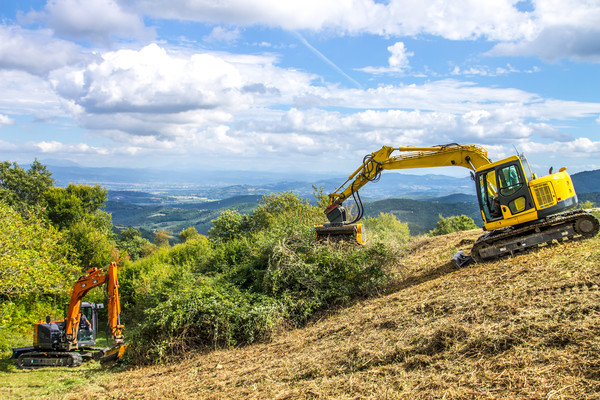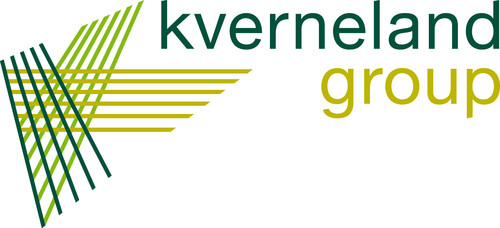
RuralBioUp, a European project to promote bioeconomy
The project was launched in October 2022 to support the growth of bioeconomy and related supply chains, involving twelve partners in nine different countries. Italy, where three of the nine regional hubs under the project will be activated, has been assigned a leading role
The European Union is funding more and more initiatives to accelerate the development of new economic forms based on sustainability principles. The RuralBioUp Project "Empowering EU Rural Regions to scale-Up and adopt small-scale Bio-based solution" - launched in October 2022 - is designed to support the growth of the bioeconomy and associated supply chains in the different rural areas of Europe according to their specific territorial characteristics (innovative markets and enterprises, biomass availability, mature technologies, etc.).
The project, funded by the Horizon Europe Circbio Program, involves twelve partners from nine different countries (Italy, Austria, Estonia, France, Ireland, Lithuania, Portugal, Czech Republic and Romania). The coordination of activities is entrusted to the Italian APRE (Agency for the Promotion of European Research), which for Italy collaborates with three other organizations: Itabia Italian Biomass Association, Spring, the Italian Cluster of Circular Bioeconomy, and the Lombard Green Chemistry Association (LGCA).
RuralBioUp primarily wants to enhance the vast heritage of knowledge and experience gained from numerous other projects, European and national that have been publicly funded in recent years. Therefore, from the very beginning, all partners have been engaged in selecting a large number of reports, videos and databases pertaining to the sphere of interest of the circular bioeconomy. With this endowment of information, useful tools will be developed to transfer knowledge to the wide audience of stakeholders that will be built over a three-year period of activity. These tools will be used to promote specific territorial supply chains for the sustainable use of natural and renewable raw materials/subproducts, thus reducing the environmental impact of agricultural and agro-industrial production and increasing the added value of the entire supply chain. Hence, over the duration of the Project, a series of actions will be activated to facilitate the development of the circular bioeconomy through the enhancement of biomass - residual or specially cultivated - to be directed to various promising sectors, such as bioenergy, green chemistry, textiles, green building, etc. A dedicated Action Plan will be developed to develop each selected supply chain.
To this end - in all Project Partner countries - networks of stakeholders called Regional Hubs will be created. They will include farmers, public administrations, businesses, innovation agencies, research institutions, etc. The Hubs will help to stimulate constructive dialogue on issues of common interest and to disseminate information arising from project activities such as biomass utilization opportunities, best practices, technological and scientific know-how, action plans, etc. This is meant to facilitate the transfer of well-selected experiences on bioeconomy, technological innovation and governance guidelines for rural areas. Concerning establishing Regional Hubs, Italy has been assigned a major role, having to activate as many as 3 out of the total 9 foreseen by the project. These Hubs -already in place in the Marche and Puglia and also being formed in Lombardy- will be coordinated by Itabia, Spring and LGCA, respectively, and conditions are being created for them to interact to stimulate dialogue between different realities and amplify the spillovers of the activities carried out.
To this end, a close synergy was immediately activated with managers and technicians from the Agriculture Departments of the Marche and Puglia Regions, while for Lombardy, the dialogue is with Ersaf (Regional Authority for Services to Agriculture and Forestry). Working with regional administrations and their related research institutions will certainly make stakeholder engagement actions more impactful in the Regional Hub, thanks to the expertise and credibility gained from accredited structures on topics of converging interest.
After several preparatory and orientation meetings of the Regional Hubs, the first in-person technical-operational meeting will be that of the Puglia Hub to be held in Bari during the Agrilevante Fair (October 5-8, 2023). Within this framework, two working days will be organized during which Apulian stakeholders will be able to exchange views with renowned experts on the following topics: agroenergy (bioenergy and agrivoltaics); innovative technical means in agriculture (biofertilizers and active biomolecules), minor crops for the bioeconomy; and forestry mechanization. One day will then be dedicated to conducting technical visits to farms considered exemplary for the sustainability of practices and multifunctional approach to production.
According to the indications provided by the Apulia Region, an interesting aspect concerns reflection on how to orient the Agricultural Knowledge and Innovation System (AKIS). This could draw lines of development to be proposed in the National Rural Programming from which actions in the local area (Region) will derive. According to European programming, it is precisely such a system that is the place for processing, exchanging and disseminating knowledge and innovation in agriculture, which is one of the objectives of the RuraBioUp project. Those involved in a selection made out of the 48 Operational Groups (GOs) approved under Measure 16 of the regional RDP played an important role in the establishment of the Apulian Hub. This measure funds promoters of innovation in production techniques, encouraging research and knowledge sharing in the rural sector. The launch at Agrilevante of the work of the Puglia Hub will be a useful test case for the entire RuralBioUp Project. It will immediately become clear whether the stakeholder network activated by this project can be a tool for administrations to listen to the territory, useful for understanding whether the strategies adopted to date in the bioeconomy sphere are going in the expected direction and whether the agricultural sector has well received them.








